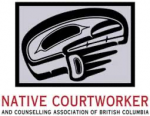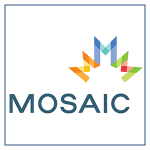
Get Started
The Salvation Army has an international Modern Slavery and Human Trafficking response and strategy that we are employing throughout the world. Read more here
The Slavery Footprint Team has designed an interactive platform to help us understand and reflect on ethical consumerism and how we can play a part to end human trafficking, found here
The Ontario Provincial Government offers a comprehensive online training on human trafficking and exploitation in Canada, found free here
ACAMS offers a free training for the financial sector, Fighting Modern Slavery & Human Trafficking, found here
Lived Experience Voices
Migrant Worker’s Centre developed Hidden in Plain Sight; Labour Trafficking and Migrant Workers in Canada, found here
Clan Mothers Healing Village has developed an Indigenous led Survivor leadership knowledge gathering, found here
Timea’s Cause Online Training Institute offers education and initiatives engaging lived experience, found here


Canadian Research & Reports
Migrant Worker’s Centre developed the report, Labour Trafficking and Migrant Workers in British Columbia, found here
The Native Women’s Association of Canada has published Our Spirits Are Not For Sale, found here
Covenant House has published Getting Out: A National Framework for Escaping Human Trafficking for Sexual Exploitation in Canada, found here
ACT Alberta has completed research on the intersections of race, migrant workers, and sexual exploitation in Alberta, found here
The Government of Canada released Moving Forward in the Fight Against Human Trafficking in 2018, found here
Related Resources
Children of the Street Society offers toolkits and videos to prevent the exploitation of children and youth, found here
Fraser Health Authority offers Help Don’t Hinder, a free, online training for emergent health care providers across Canada, found here
MOSAIC and Ending Violence Association of BC, have compiled an excellent Risk Assessment Framework and additional materials for identifying forced marriage, and it’s relation to human trafficking, found here
The BC Ministry of Health, Mental Health, and Substance Abuse Branch has developed a Trauma Informed Practice Guide that gives excellent information on how to best support survivors as service agencies, found here
The Montreal Urban Aboriginal Community Strategy has produced an important guide to support & develop allyship of Indigenous populations, found here
B.C.’s Office to Combat Trafficking in Persons offers a toolkit to raise awareness and prevent human trafficking in BC, found here


Ethical Storytelling
The Salvation Army Illuminate are leaders in Canada for rehabilitative programming for Survivors. With this responsibility, we have made a commitment to Ethical Storytelling, joining thousands of agencies across the world and leading the initiative here in Canada. Recovery, safety, and protection of Survivors is paramount to us.
We recognize that raising up Survivor voice is an important component of changing the script of the story of human trafficking and of bringing truth out of the shadows, but historically across the world this has at times caused risk and harm to survivors without ethics in place. Human trafficking is a severe crime with serious impact on its victims, as well as ongoing risks of safety and re-exploitation.
Therefore we adhere to the following standards in storytelling of Survivor experiences through our programs, and encourage agencies across Canada to rise to these same standards:
- No Survivor will be required to share any part of their story for public or promotional uses while accessing our programs. Their best interest and safety will always take precedent. We reject coerced advocacy exploitation of Survivors.
- Survivors who express a desire to share their stories or input are provided appropriate training and one on one support to develop their message. Survivors are provided appropriate time to reflect on what they would like to communicate, with the goal of equitable partnership.
- Opportunities to participate in internal research projects will be conducted with our established Ethics Guidelines, which align with Government of Canada standards & the World Health Organization, and/or Ethics Review where applicable.
- We follow applicable laws, including the Convention on the Rights of the Child, as well as the United Nations Economic and Social Council’s Guidelines on Justice in Matters Involving Child Victims and Witnesses of Crime when working with minors.
- Storytelling will make every effort to ensure that Survivors engaged in criminal or civil justice proceedings are not jeopardized or conditions violated.
- Survivors are informed of what the information will be used for (for example, private or public teaching, website, etc), and who will be able to see it.
- Survivors will give written informed consent for use, which can be revoked by them at any time.
- Survivors currently engaged in our programs will use a pseudonym and any identifying details that will cause potential harm to them will be removed. No images of Survivor faces will be used, and any images with a Survivor will ensure their privacy is protected and as specialized consent.
- Survivors who have accessed recovery will be provided access to grow as consultants and educators, and where appropriate, be provided honoraria for their time where possible.
- We commit that Survivors who have achieved levels of recovery and stability will be offered opportunities to give their input in our program development and implementation, as well as evaluation and public education purposes.
- We commit to using storytelling and images for the purpose of prevention & education, free of sensationalism and stereotypes.
- Program funders who request survivor testimonies will be made aware of these standards. Research projects will ensure this lens is applied.
We encourage all exploitation serving agencies in Canada to adopt these standards, and sign the ethical storytelling pledge at ethicalstorytelling.com
SHIFT Survivor-Led Research
SHIFT is conducted nationwide, which takes a Participatory Action Research Design approach to anti-human trafficking research. Our research design and implementation places those with lived experience of exploitation and human trafficking at the forefront of our research.

We employ an extensive ethical review framework to all SHIFT research projects we undertake. It’s for these reasons we chose a Participatory Action Research (PAR) Design model. (PAR) “focuses on social change that promotes democracy and challenges inequality; is context-specific, often targeted on the needs of a particular group; is an iterative cycle of research, action and reflection; and often seeks to ‘liberate’ participants to have a greater awareness of their situation in order to take action.” (https://www.participatorymethods.org/glossary/) We engaged Survivors throughout the study in collective inquiry and experimentation grounded in experience and social history. We feel that this approach offers tangible opportunities for Survivors to take an active role in the direction and activities of the research.
Take Action: Be part of the solution by referencing this research in your funding or grant applications or supporting presentations of Shift research in your organizations. Advocate for policy changes, implement prevention strategies, or support ethical interventions, your application of our research findings contributes to creating meaningful change and protecting vulnerable individuals from exploitation and trafficking.
Empower Survivors: Help empower Survivors of human trafficking by engaging with our research and participating in discussions on how to prevent exploitation. Your involvement supports Survivors’ voices being heard and valued in the fight against human trafficking. By joining us, you contribute to a collective effort aimed to uplift Survivor voices, understanding the the issues of human trafficking and preventing it from occurring.

SHIFT 1 Survivor-Led Research Report
SHIFT 1: SHIFT 1, titled Survivor Service Access, was our first nationwide research study, completed in 2022.. This research, partially funded by the Department of Justice Canada, closely examined how Survivors access a variety of services.
The goal of our research was to IMPROVE services, encourage ACCOMMODATIONS when Survivors fall outside of program mandates, and SUPPORT those seeking help and recovery in the best way possible.
SHIFT 1: The information garnered in this report is highly sensitive. As an organization that walks with Survivors of human trafficking towards healing, restoration, and renewal, our first and foremost priority is ensuring Survivor safety. Our guiding principle is always to do-no-harm. Therefore, every interaction with Survivors is one that constructively supports healing and growth, accurately assesses risk and inclusion, and engages ethical storytelling.
For Service Access, our specific audience was service providers. In order for our research not be used for harm once published, we undertook a robust safety assessment. Through consultation with our Survivor Committee, Practicum Students (Survivors) and Consultants, we felt that this research needed to be shared, but to maintain safety, only a portion of the Executive Summary would be made available to the public. This supports the purpose of equipping and training a diverse field of service providers, while opening the lines of communication which protects those that have experienced exploitation and trafficking.
To honor the wishes of Survivor participants and to protect sensitive information and prevent unethical storytelling, the entirety of this project will not be published for the general public.
All research participants have access to the full report and are provided additional support to process the results.
To review the Executive Summary, click here.
To access the Final Report, click here and input the password provided upon request (refer below):
Service providers from valid service agencies across Canada are invited to email us at connect@illuminateht.com to request to review this report and/or participate in training.
SHIFT 2 Survivor-Led Research Report
SHIFT 2: Origins of Human Trafficking, completed in 2023, stands as the pivotal second phase of our comprehensive research dedicated to combating human trafficking in Canada. With Survivors’ voices at the core, this participatory study is not just a research endeavor but a profound exploration into the root causes of human trafficking. We boldly strategized ways to prevent this insidious crime, acknowledging the urgent need for deeper understanding in the face of its devastating impacts.
In response to the urgent need for a deeper understanding of the origins, effectiveness, and prevention of human trafficking, our organization concentrates on intervening when possible and aiding in the recovery process. With a commitment to ending the dehumanization and profound suffering inflicted by human trafficking, we recognize the necessity for collaboration in this struggle. We believe that gaining a more fulsome understanding of the root causes of human trafficking will result in anti-trafficking efforts that are more evidence-based and effective.
One Survivor Practicum Content Reviewer captured the essence of our mission perfectly when they said, “The system quite often waits until you’re in a high-crisis moment to hear you and help—when it’s too late. At this moment, they finally help. It’s very frustrating because if we had more prevention, I would never have gone through this nightmare.” Their words drive our determination to prevent such nightmares from unfolding.

SHIFT 2: Origins of Human Trafficking aims to answer these critical questions:
- What are the underlying causes of human trafficking and exploitation in Canada?
- How can we effectively prevent human trafficking?
- What strategies are most effective for early intervention in labor and sex trafficking?
This study serves multiple purposes: an educational tool informing program design, policy, and legislation; enhancing lived experience inclusion; improving awareness and prevention strategies; supporting the practice of ethical interventions; and empowering stakeholders across Canada. We used both a PAR and included a Socio-Ecological Research Framework to look at four key themes: core needs, technology, assertiveness, trust. These themes provide valuable insights into some root causes of human trafficking and inform the development of effective prevention and intervention strategies.
SHIFT 2 symbolizes our ongoing commitment to creating meaningful change and contributing to the collective work to inform Canada’s prevention efforts and reshape dominant narratives on the origins of human trafficking. Human trafficking demands a united front. By sharing and understanding this report, you contribute to a collective effort aimed not just at immediate intervention, but at understanding the roots and preventing the destruction of lives.
Join us in this pivotal journey to address root causes, empower Survivors, and prevent exploitation and trafficking at its origins.
To honor the wishes of Survivor participants, to protect sensitive information and prevent unethical storytelling, the entirety of this project will not be published for the general public. All research participants have access to the full report and are provided additional support to process the results.
To review the Executive Summary, click here.
To access the Final Report, click here and input the password provided upon request (refer below):
Service providers from valid service agencies across Canada are invited to email us at connect@illuminateht.com to request to review this report and/or participate in training.














